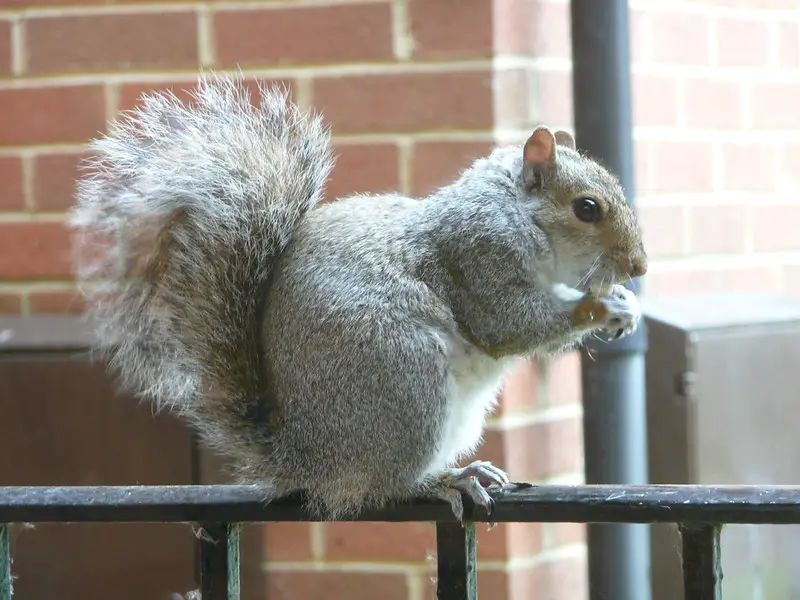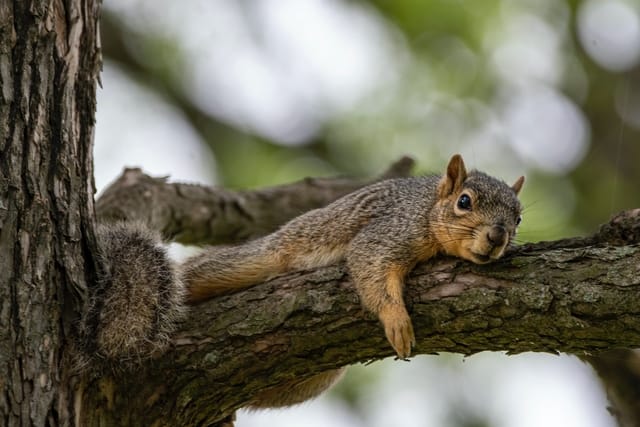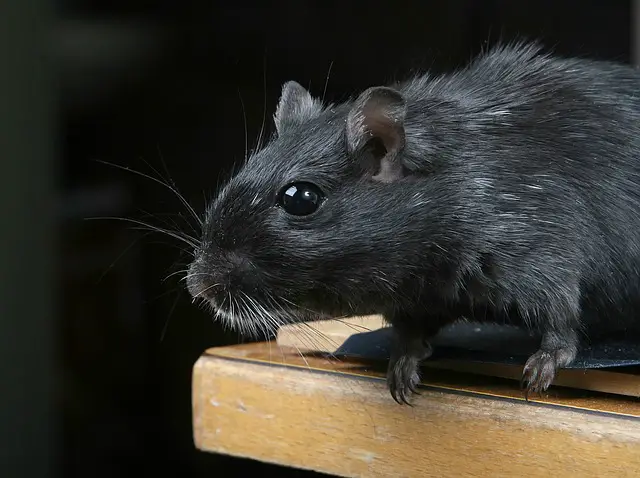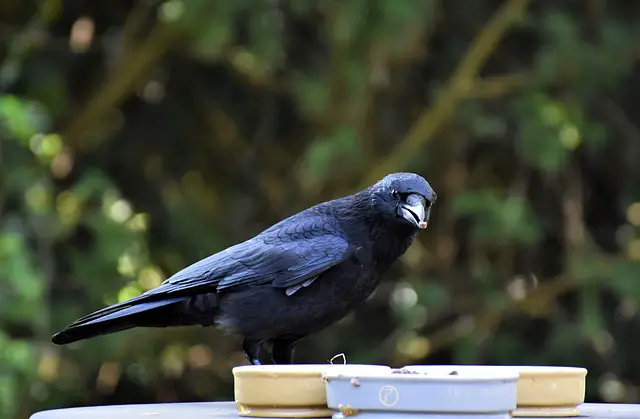Squirrels are one of the most prevalent, and beloved, urban wildlife species in many regions across the U.S., but it’s quite common to find stories and rumors about cats eating squirrels, or even cats that specialize in eating squirrels as their favorite food source. What’s the real answer to the question of do cats eat squirrels? Is it common for house cats to eat squirrels? Do all cats eat squirrels? What do they eat if they don’t eat squirrels? We’ll explore these questions and more!
Related post:
- Are Slugs Dangerous To Cats?
- Do Crows Eat Squirrels?
- Do Squirrels Drink Water?
- How to keep squirrels off the roof?
Do cats eat squirrels?
The natural diet of a cat is small rodents, birds, reptiles and fish. The domestic cat is an obligate carnivore—meaning that he must eat meat in order to survive. Despite their reputation as man-killers (or woman-killers), cats are not typically aggressive hunters. They prefer to sneak up on their prey and pounce when they get close enough so they can use their claws to make a quick kill.
However, if another predator comes along or her kittens are in danger, your kitty may attack out of instinct rather than choice. Cats will eat just about anything they can catch—including squirrels!
Do cats hunt squirrels?
Because cats can be so finicky, it’s hard to know for sure whether or not your kitty eats squirrels. Generally speaking, however, it is safe to say that all cats will eat squirrels. This fact is not surprising because one of a cat’s main food sources in nature is small rodents and birds.
From an evolutionary standpoint, cats evolved as predators and developed meat-eating habits over time. Because they are carnivores by nature, they instinctively like red meat and any food source that fulfills their dietary needs is a potential meal!
How to stop your cat from killing squirrels?
If you’re wondering how to stop your cat from killing squirrels, don’t! This is a common occurrence, and not only is it completely natural for your cat to kill these adorable little rodents but eating them provides health benefits. One word of caution: your cat can also contract parasites and disease from squirrel carcasses.
And if you don’t dispose of them properly, they could become an attraction for other wild animals in your neighborhood. But aside from those caveats, there’s nothing wrong with your feline friend preying on these critters. In fact, she might not be doing enough! Let’s take a look at why cats eat squirrels and how they benefit when they do so.
Related post: How Fast Can A Squirrel Run?
Do cats attack squirrels?
Squirrels can be eaten by cats as well as other predators such as dogs and birds of prey. This is because squirrels are part of a larger group of mammals known as small game, which includes rats, mice, raccoons and opossums. Many different animals will eat squirrel meat.
Do cats hunt squirrels?: No cat is going to go out hunting rodents in their spare time! The reality is that even a large predator such as a lion or cheetah won’t try to hunt down a small animal like a squirrel. Most cats (including lions) will try to avoid them and just focus on bigger prey that they can easily catch.
Is it normal for cats to eat squirrels?
While many wild cats prey on squirrels, it’s not a common occurrence. However, domestic cats in some areas where squirrel population is high may sometimes choose to hunt them. Domestic cats are opportunistic hunters who will eat anything they can catch and kill. If you have a cat and you notice small animals disappearing from your yard, there’s a good chance that your cat is hunting them.
Squirrel meat is nutritionally similar to other types of small mammals, making it an appealing food source for cats of all ages…
Why do cats eat squirrels?
Sometimes cats eat squirrels because it’s in their nature to hunt. A cat is a predator and will pursue anything that moves, whether it be an insect or a tree rat. It doesn’t matter if your cat isn’t feral (meaning he or she has been domesticated and is used to humans) or can survive on a diet of kibble; if a rodent happens to enter your cat’s territory, there is a good chance he will try to eat it.
This behavior isn’t exclusive to domesticated cats; even big cats—such as lions and tigers—will devour animals that would normally be out of their reach. They have been known to hunt prey up to five times their size!
Can a cat get sick from eating squirrels?
No, says David Kessler, veterinarian and author of The Cat: Its Behavior, Nutrition & Health. Most cats can eat as many squirrels as they please without any ill effects, he said. That’s because most squirrels don’t have a disease that would make a cat sick. But according to Dr. Mary Gail Mercurio of Cornell University’s College of Veterinary Medicine, some squirrel meat could contain an organism called Toxoplasma gondii, which can be passed from one animal to another via feces.
A cat that eats an infected animal like a squirrel may end up with toxoplasmosis, a brain infection that is typically not dangerous for adult cats but does pose serious risks for kittens or pregnant animals.
How to stop your cat from eating squirrels?
There are many solutions to help you stop your cat from eating squirrels. You need to assess your unique situation and come up with a solution that works for you. The most important part of solving your problem is finding one or more solutions that really work for you.
Then, stick with it! I’m sure there will be times when it seems like nothing’s working, but if you keep at it, one day soon things will start getting better. Don’t give up! If all else fails, talk to a professional about what’s going on and get some expert advice about what might help solve your problem. And please let me know how things turn out for you! I’d love to hear from you again soon!
Do cats kill gray squirrels?
The majority of cats can eat chipmunks and will do so if given a chance. It is much more common for your cat to go after a chipmunk than a squirrel, however. Chipmunks are in a similar family as rodents and have very similar characteristics as well. Both have large, fluffy tails that make for easy targets.
Keep an eye on your cats whenever they are outside for signs of chipmunk remains or other signs of hunting (such as bird feathers). Keep your windows closed at night to reduce chances of any mishaps with these critters while you sleep. Many times, your cat will bring them inside so don’t be surprised if you see one scurrying around looking for a hiding place!
Do cats eat chipmunks?
Yes, but often not on purpose. If your cat encounters a chipmunk while looking for food, it’s possible that he might end up eating it even if he’s not hungry. However, cats rarely seek out chipmunks and mice intentionally as food sources; they’re more likely to catch these critters by surprise while scavenging through piles of trash or chasing birds and rabbits around your property.
You should know that even if your cat does eat a chipmunk (or any other small animal), his health isn’t at risk. Although wild animals can carry parasites and other diseases, those risks disappear when eaten by another animal. Your cat is perfectly safe eating squirrels or other types of small mammals—as long as you keep him away from poison bait!




